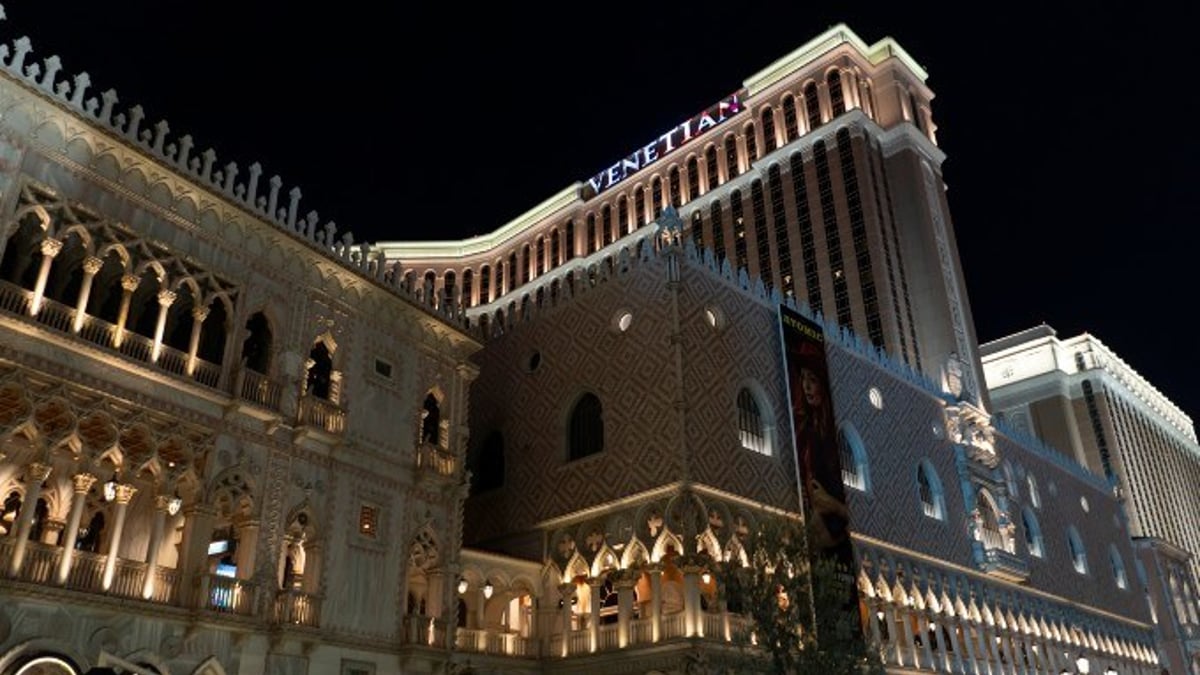Las Vegas Sands Sells Strip Properties for $6.25 Billion

Less than two months after the death of company founder Sheldon Adelson, Las Vegas Sands has seen its corporate name rendered almost meaningless as Adelson’s successors in operating the company sold off its high-profile Vegas properties to a private equity fund and a real estate investment trust that specializes in casino assets.
Las Vegas Sands announced Wednesday that it is selling the Venetian, its sister property, the Palazzo, and the Sands Expo and Convention Center for an aggregate purchase price of approximately $6.25 billion to an affiliate of funds managed by affiliates of Apollo Global Management, Inc., and Vici Properties Inc.
In late October, reports first surfaced that Sands was exploring the sale of the properties.
Apollo will acquire subsidiaries that hold the operating assets and liabilities of the Las Vegas business for approximately $1.05 billion in cash, subject to certain post-closing adjustments, and $1.2 billion in seller financing. Meanwhile, Vici Properties gets subsidiaries that hold the real estate and real estate-related assets of The Venetian for approximately $4 billion in cash, according to a news release.
Apollo is no stranger to Las Vegas and vice versa. In the late 2000s, the private equity organization teamed up with another private equity firm to swallow up then Harrah’s and later Caesars Casino. That blockbuster deal ended in one of the messiest bankruptcies in history.
Interestingly, Vici emerged from the ashes of that bankruptcy and became part of a mini-wave of gaming REITs. Essentially, a REIT owns the bricks-and-sticks of a business and leases the physical spaces to tenants.
In the case of Vici, its portfolio includes 28 gaming facilities comprising 47 million square feet. It features approximately 18,000 hotel rooms and more than 200 restaurants, bars, nightclubs, and sportsbooks. The marquee name among Vici assets is Caesars Palace. Now, the Venetian-Palazzo and the Sands Convention Center have joined the list.
This sale leaves Las Vegas Sands as primarily an Asia-facing company. Among its properties in Asia is Marina Bay Sands in Singapore. In Macao, the company built by Adelson owns The Venetian Macao, The Plaza and Four Seasons Hotel Macao, The Londoner Macao, and The Parisian Macao, as well as the Sands Macao on the Macao Peninsula.
Sands a Las Vegas Landmark
On the U.S. casino scene, the Venetian helped set the bar high for Las Vegas resorts. Known for its Italian-inspired architecture, its shopping mall with designer shops, a waterway and gondolas, and its spacious, opulent rooms, it has become a Las Vegas—and Nevada—landmark.
Adelson, who died on Jan. 11 at age 87, is recognized as a colossus in Las Vegas and a major player in Republican politics. Now, an epitaph is being written on the Las Vegas portion of his vision for integrated casino resorts.
"The Venetian changed the face of future casino development and cemented Sheldon Adelson's legacy as one of the most influential people in the history of the gaming and hospitality industry. As we announce the sale of The Venetian Resort, we pay tribute to Mr. Adelson's legacy while starting a new chapter in this company's history," Las Vegas Sands Chairman and CEO Robert Goldstein said. "This company is focused on growth, and we see meaningful opportunities on a variety of fronts. Asia remains the backbone of this company and our developments in Macao and Singapore are the center of our attention.”
What’s Next for Las Vegas Sands?
Before Adelson’s death, Las Vegas Sands prominently began lobbying efforts in Texas in the hopes of bringing gaming to that state.
There was also talk about entering the New York online gambling market. Where those domestic plans will go now remains to be seen, though Goldstein continued to reflect on U.S. ventures.
“We will always look for ways to reinvest in our properties and those communities,” Goldstein said. “There are also potential development opportunities domestically, where we believe significant capital investment will provide a substantial benefit to those jurisdictions while also producing very strong returns for the company."










